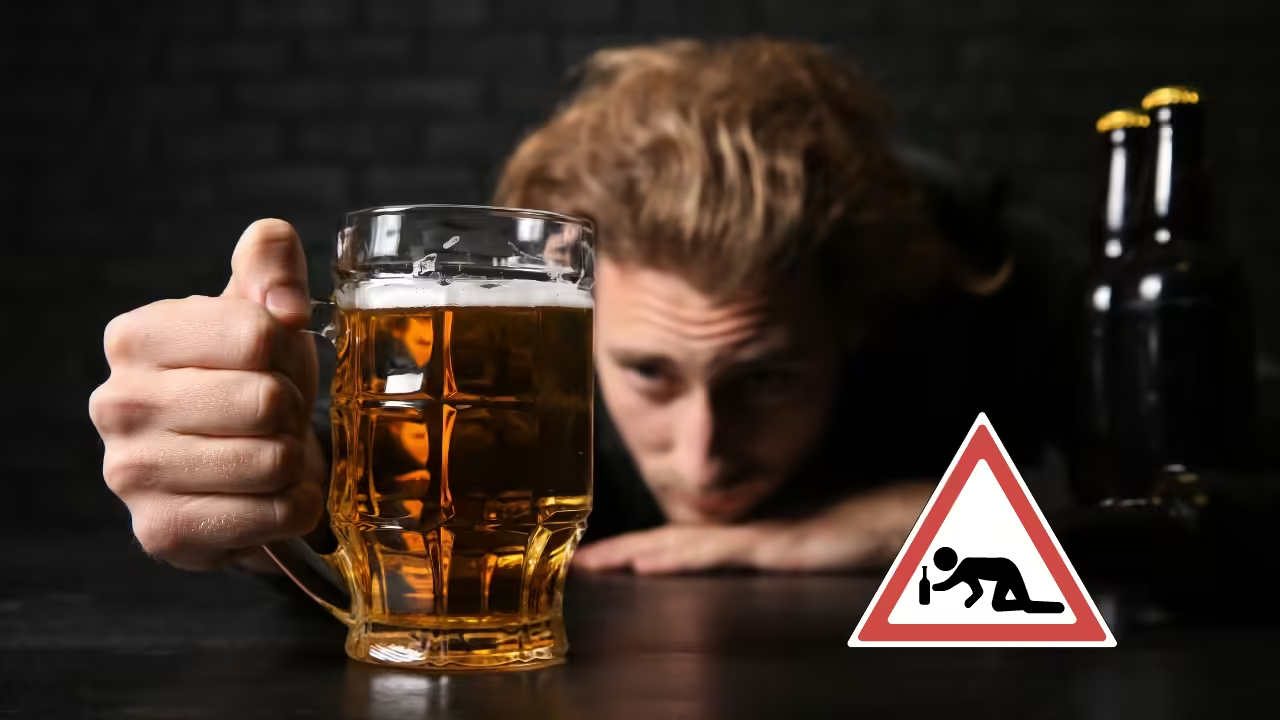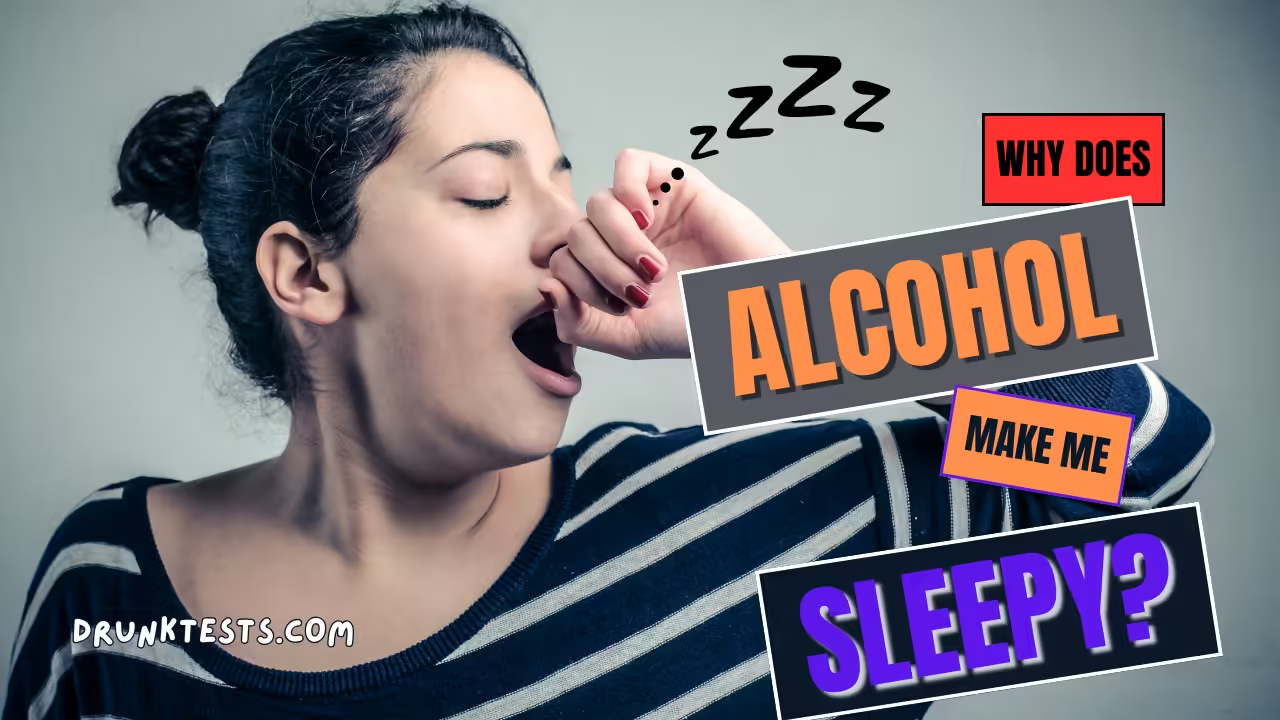You can’t quite put your finger on it, but something has definitely changed.
There was a time when you could go out with friends, grab a few drinks, and enjoy yourself for hours on end without a second thought.

You’d sip on a gin and tonic or any of your favorite cocktails and feel energized, ready to take on the night. Back then, partying and socializing late into the evening was easy—almost second nature.
But now?
Things are different.
Instead of feeling pumped for more after a drink, you start feeling sluggish, maybe even ready to call it a night much sooner than expected.
The same gin and tonic that used to put you in a lively, fun mood now just makes you want to head home and crawl into bed.
It’s got you wondering: Have your wild nights out finally come to an end? Is your body trying to tell you that your days of carefree drinking and staying up late are behind you?
Alcohol is often consumed in social settings, but for many, it comes with an unanticipated side effect—feeling sleepy. Have you ever wondered, why does alcohol make me sleepy?
Let’s dive into the science behind this common experience, how alcohol affects your sleep, and when you should be concerned.
Why Does Alcohol Make Me Sleepy?
Alcohol is known to have sedative properties that can make you feel drowsy or even lull you to sleep quickly. But why does this happen?
When alcohol enters your bloodstream, it affects your brain’s neurotransmitters, specifically gamma-aminobutyric acid (GABA), which slows down brain activity, leading to a sense of calm or drowsiness.
It essentially acts as a depressant on your central nervous system, which explains the heavy-eyed feeling many people experience after drinking.
Understanding the Sedative Effects of Alcohol
While alcohol may make you feel more relaxed and sleepy, it doesn’t necessarily lead to restful or quality sleep. This is because alcohol doesn’t just slow down brain activity;
it disrupts critical stages of sleep, including Rapid Eye Movement (REM) sleep. The initial sedative effect fades as your body processes the alcohol, and you may wake up feeling less rested than if you hadn’t consumed alcohol at all.
How Alcohol Impacts Your Sleep
Alcohol alters the structure of your sleep cycle in several ways:
Effects on REM Sleep: Alcohol reduces the amount of REM sleep you get during the night. REM is the most restorative part of your sleep cycle, crucial for cognitive functions such as memory, concentration, and mood regulation.
Without enough REM sleep, you may feel groggy, irritable, and less alert the next day.
Effects on Circadian Rhythm: Your body operates on an internal clock, known as the circadian rhythm, which regulates sleep-wake cycles.
Alcohol can throw this rhythm out of balance by shortening the time it takes to fall asleep, but it leads to fragmented sleep later in the night, often causing you to wake up frequently.
Alcohol Makes Me Tired, Not Drunk… Why?
For some people, alcohol doesn’t create the expected “buzz” but instead induces fatigue and sluggishness.
This could be due to your body’s metabolism of alcohol or how sensitive your brain is to its sedative effects. Genetics and individual tolerance levels play a role as well.
If you find that even a small amount of alcohol makes you tired, it might be your body’s way of saying it’s more sensitive to its depressant effects than others.

How Do I Keep From Getting Sleepy After Drinking?
If you want to enjoy alcohol without succumbing to drowsiness, here are a few tips:
- 1. Stay Hydrated: Alcohol is a diuretic, meaning it can lead to dehydration, which contributes to feelings of fatigue. Make sure to drink plenty of water before, during, and after consuming alcohol.
- 2. Eat Before Drinking: Consuming food before drinking can slow the absorption of alcohol into your bloodstream, making the effects less intense.
- 3. Pace Yourself: Drinking slowly allows your body more time to metabolize alcohol, preventing its sedative effects from hitting you all at once.
- 4. Move Around: Staying physically active during or after drinking can help keep drowsiness at bay. Take a walk, dance, or engage in light physical activities.
Alcohol as an Aid for Insomnia
Some people turn to alcohol as a sleep aid, hoping it will help them fall asleep faster.
While alcohol might seem like a quick fix for insomnia, it’s far from an effective long-term solution. In fact, relying on alcohol for sleep can backfire by disrupting your sleep architecture, leaving you feeling unrested and worsening insomnia over time.
A Note on Changing Your Relationship with Alcohol
If you find that alcohol regularly makes you sleepy or disrupts your sleep, it might be worth reassessing your drinking habits.
Reducing alcohol consumption or limiting it to earlier in the evening could significantly improve the quality of your sleep. If you notice chronic sleep disturbances or fatigue tied to drinking, it might be time to consult a healthcare professional.
Understanding why alcohol makes you sleepy can help you make more informed decisions about your consumption, especially when it comes to your health and well-being.
While the drowsiness might seem like a minor inconvenience, consistent sleep disruption can lead to more significant issues over time. Listen to your body, and consider adjusting your drinking habits for better overall health.
